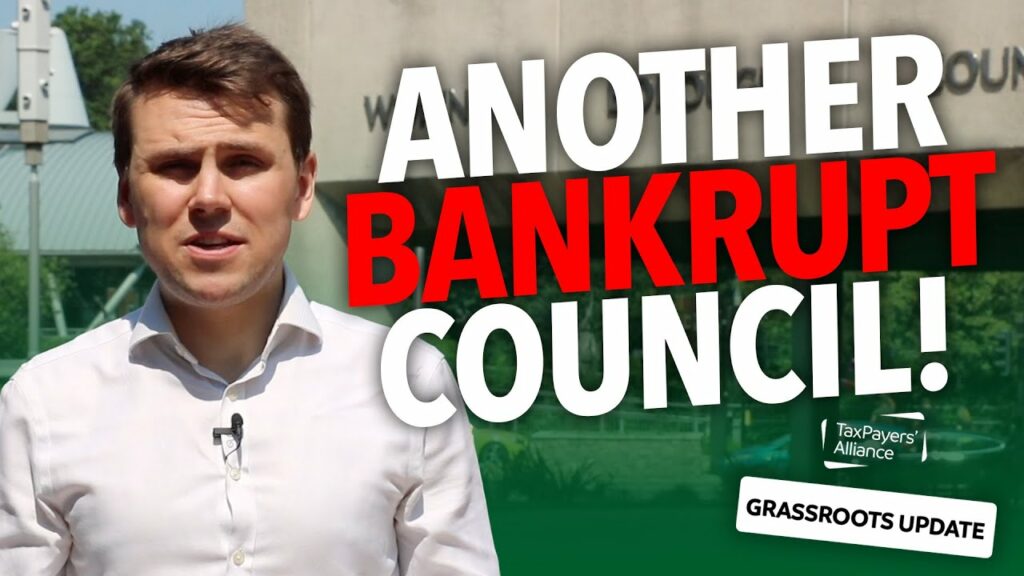Digital Zeitgeist – The Looming Bankruptcy Wave: A Deep Dive into the UK’s Council Crisis
In the midst of an economic landscape fraught with uncertainties, at least 26 English councils are teetering on the brink of financial abyss. The chilling revelation that these councils, primarily situated in some of Britain’s most underprivileged regions, face the spectre of bankruptcy within a mere two-year span signals a deeper malaise infecting the UK’s local government financial system.
The fiscal quagmire that commenced with the shocking financial collapse of Slough, quickly echoed with similar tales of woe from Croydon, Thurrock, and more recently Woking. Woking, for instance, sounded the financial alarm bells with a staggering deficit of £1.2bn in June, attributed largely to a series of perilous investments.
A survey of 47 councils spanning northern England, the Midlands, and the south coast by the Special Interest Group of Municipal Authorities (Sigoma) warns that this might merely represent the initial shockwaves of a far more comprehensive financial earthquake. The immediate concern? A total of five Sigoma members are on the cusp of releasing notices declaring their incapability to balance their 2023-24 annual budgets. Another nine predict a bankruptcy declaration by next year.
Unravelling the intricacies of this fiscal dilemma, several key causative factors emerge. A soaring demand for children’s social care services post the government’s mandate to equate its priority with adult social care seems to be draining coffers. Furthermore, skyrocketing inflation rates paired with commensurate wage hikes are only exacerbating the strain on local authority budgets. With the cost of borrowing predicted to rise, the storm clouds seem only to be gathering momentum.
However, the government’s response appears to take a firm stance on the autonomy and responsibility of councils regarding their financial management. Despite recognising the aforementioned pressures and implementing measures such as the aim to slice inflation by half, and the promise of a 3% hike in core spending power for every council, the central message is clear: councils must refrain from taking undue risks with the public purse.
Sir Stephen Houghton’s impassioned assertion that “the funding system is completely broken” encapsulates the prevailing sentiment among many council heads. Pointing to a 13-year history of councils attempting to make the best of a dwindling financial situation, Houghton emphasises the dire straits local governments currently find themselves in. Financial misadventures like Woking’s ill-fated property spree or Thurrock’s doomed borrowing escapade serve as cautionary tales. Slough’s staggering £100m budgetary chasm in 2021 and Croydon’s third bankruptcy announcement in November 2022 stand as sombre testaments to the scale of the crisis.
The potential global implications are multifold. If the trend of council bankruptcies gains momentum, it could undermine investor confidence in UK municipal bonds and instruments, casting a shadow over the country’s creditworthiness. This might also trigger tighter scrutiny by international rating agencies, further complicating the UK’s borrowing prospects. On the geo-political front, sustained fiscal mismanagement at the council level could dent the nation’s global reputation, potentially influencing trade, and bilateral negotiations.
Conclusion: Playing Devil’s Advocate
But, for a moment, let’s play the devil’s advocate. Is there a silver lining to this apparent gloom? Financial crises, historically, have often been catalysts for broad systemic reforms. Could this looming wave of bankruptcies compel a radical overhaul of the council funding mechanism? If councils are forced into fiscal prudence, might we see a rise in innovative, sustainable financial models that prioritise long-term stability over short-term gains? Moreover, as councils re-evaluate their investment strategies, there might be an impetus to support local, grassroots initiatives, revitalising local economies.
In the end, while the immediate forecast appears bleak, it’s crucial to approach this challenge not merely as a crisis, but potentially as an opportunity to reinvent, revitalise and fortify the foundations of the UK’s local government finance.
Disclaimer: The views and opinions expressed in this article are those of the author and do not necessarily reflect the official policy or position of GPM-Invest or any other organisations mentioned. The information provided is based on contemporary sourced digital content and does not constitute financial or investment advice. Readers are encouraged to conduct further research and analysis before making any investment decisions.

